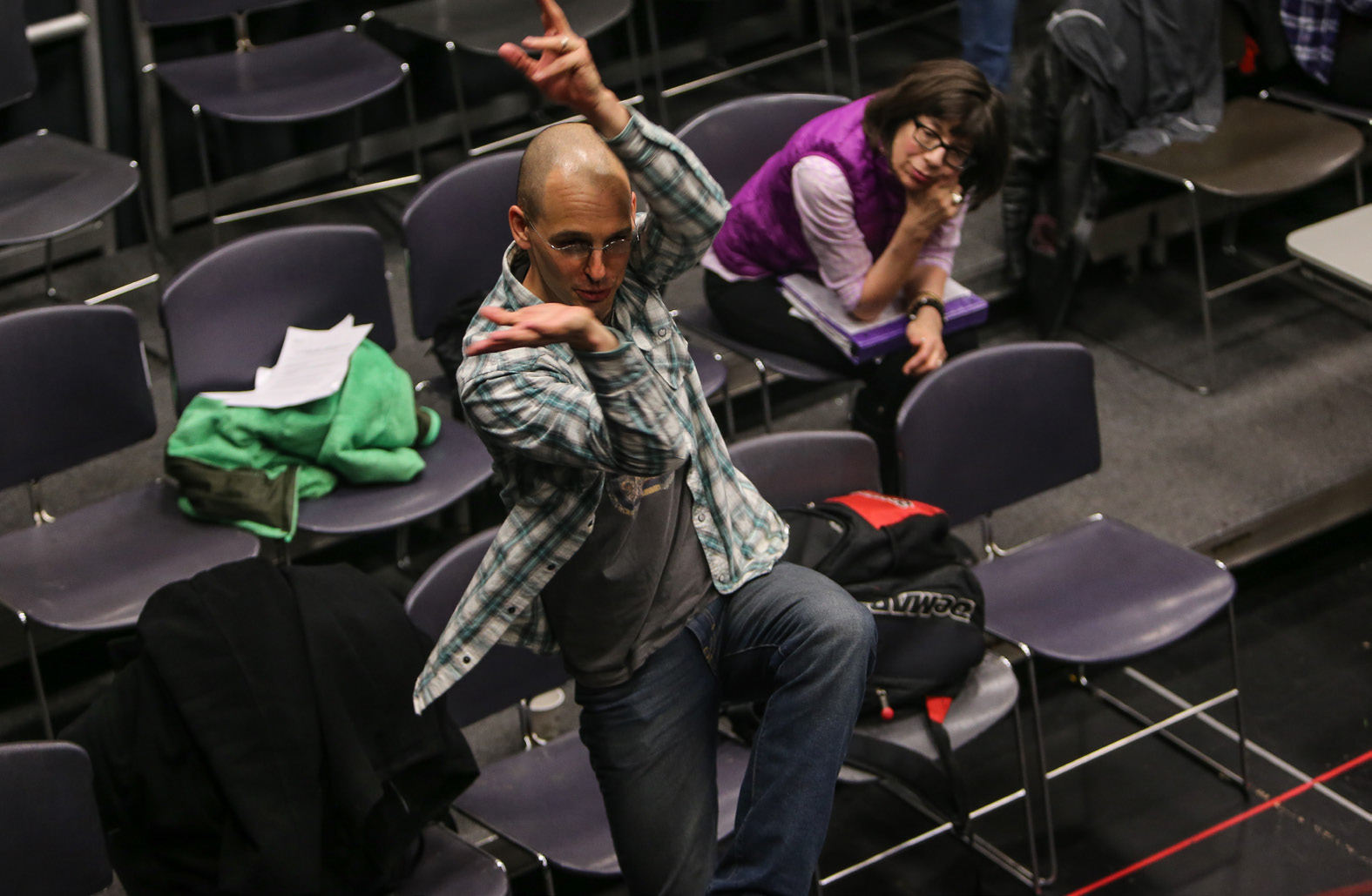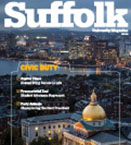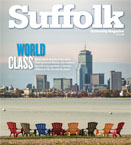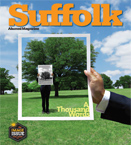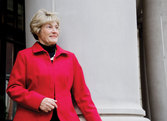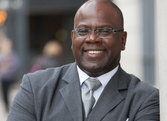Conversation Starter
Dream Team
Co-creator of Midsummer Night brings Shakespeare musical adaptation to Suffolk
By Renée Graham
In Midsummer Night, a loose adaptation of A Midsummer Night’s Dream, fairies become rock stars, capricious magic is found in hallucinogenic drugs, and Shakespeare’s romantic comedy of errors transforms into an over-the-top rock musical. Brendan Milburn, who created the show with his collaborator/wife Valerie Vigoda, attended rehearsals and taught a master class at Suffolk’s Theater Department. The show had its Boston premiere, directed by the University’s Theater Department Chair Marilyn Plotkins, at the Modern Theatre.
The Donkey Show, a disco charged version of A Midsummer Night’s Dream, has been playing to sold-out audiences for years, and now you’re presenting your musical spin on Shakespeare’s comedy. It was also inspiration for an opera by Benjamin Britten. What is it about this play that seems to lend itself so well to musical interpretations?
I think these characters simply have a lot to sing about, and the situation of those four people lost in the forest, all having been ensorcelled to fall in love with the wrong person, and chasing after each other. That scene in the middle of the play is one of my favorite scenes in all of the literature. It’s just so masterfully constructed and funny and great. It was just begging to be set to music, to me anyway.
How was your experience teaching a master class at Suffolk?
We carved away all the stuff that didn’t support the story of those four lovers going crazy in the forest, but there are huge swaths of his material that haven’t been touched at all. In some cases, we just took what was on the page and set his text to music. But in our quest to make a 90-minute musical instead of a two-to-three-hour play, we had to cleave some things away. It’s a modern take on the story. It’s not a direct quote from Shakespeare, but it’s still Shakespeare.
Ultimately, process is more important than product. If you don’t enjoy the process, there really isn’t any point. I’m lucky and privileged to be able say I write songs for characters to sing, and that’s all I do. I’ve never had a show on Broadway, but I’m getting to write songs for people to sing on stage in the context of a story where each song helps move the story forward. I feel like a kid in a candy store – I love the process.
I think tenacity is very important; tenacious people are more likely to succeed than those who are not. Luck is such a huge factor that you need to find a way to keep your-self alive and doing the thing you love until luck finds you. There’s a little bit of a renaissance in musical theater going on, but there’s not room [for everyone] to make a living writing musicals. But what there is, is alternate ways of practicing your art and getting it out there – YouTube, webisodes, even music for video games. If you keep yourself fixed on one outcome it’s likely that outcome will elude you. Tenacity is great, but flexibility is equally important.
